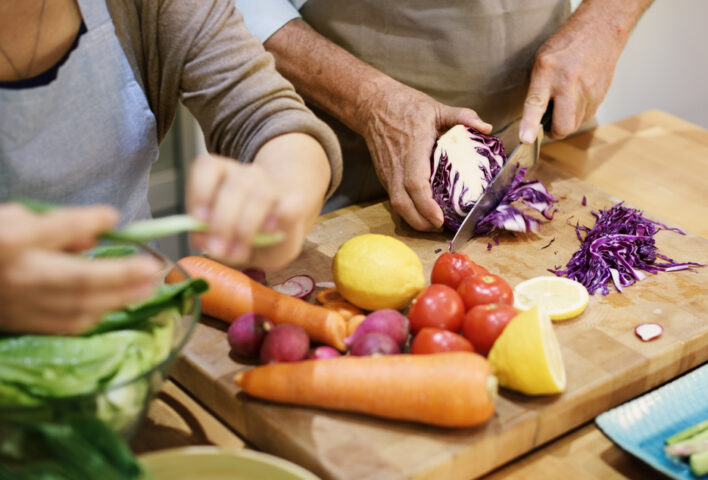Ask the Dietitian: Healthy eating as we age
We know that our tastes tend to change and develop as we age, but do our nutritional requirements also change? Registered dietitian Rachael Hunter explores.

As a population we are getting older, with one prediction being that by 2038 one in four of us will be over 65 years old. We know our tastes tend to change and develop as we age, but do our nutritional requirements also change?
With studies and nutritional guidelines anyone over 65 years old tends to be classified as ‘old’, but we know in reality that many people around this age are fit, healthy, and possibly even still working. This means that individual nutritional requirements will also vary from person to person, and decade to decade. However, for most people the Vegetarian Eatwell Guide produced by the Vegetarian Society is still an appropriate guide to follow when thinking about balanced eating.
Metabolism
As we age it is normal for our metabolism to slow down. This is partly due to being less active, and also losing some of our muscle mass. This means that the total amount of energy we need is likely to be less than when we were younger.
To stop our metabolism from slowing down even further, it is helpful to have a regular meal pattern and keep active with exercises that help to maintain our muscles. The activity guidance is the same for old and young alike: 150 minutes of moderate activity a week.
Vitamin D
Over the age of 65 years old, our skin becomes less efficient at making vitamin D, which increases the risk of deficiency. The Department of Health and Social Care recommends that everyone takes 10 microgrammes of vitamin D a day during autumn and winter, and this is particularly important as we age. Some dietary sources of vitamin D also include egg yolks, milk (cow’s milk and many plant-based milks have it added), margarine and fortified breakfast cereals. Food alone is not a replacement for a supplement in this case, but they can help to top up vitamin D stores.
Too old to diet?
A healthy BMI when we are young may not be the same as when we are older, and as we age the focus starts to shift towards avoiding malnutrition. Our bodies become less resilient over time and we change physiologically. Some guidelines suggest a BMI of 22 kg/m2 as a lower cut-off for adults aged over 70, and a large review of studies in older adults found that there was not a greater risk of death in those with a BMI classed as ’overweight’, 25-30kg/m2. BMIs above this were shown to be less good for health, but it is interesting that the lower end of the BMI healthy range may turn out to be less beneficial the more we age. This means that for a lot of us, it will be about maintaining weight rather than trying out the latest fad diet to try and lose weight.
You are what you eat
As we age, we might eat less and have different taste preferences, but it is still important where possible to enjoy our food and choose options that have as many nutrients in as possible. By choosing foods rich with vitamins and minerals, it will help ensure that our bodies get the micronutrients they need to keep us well for years to come.
